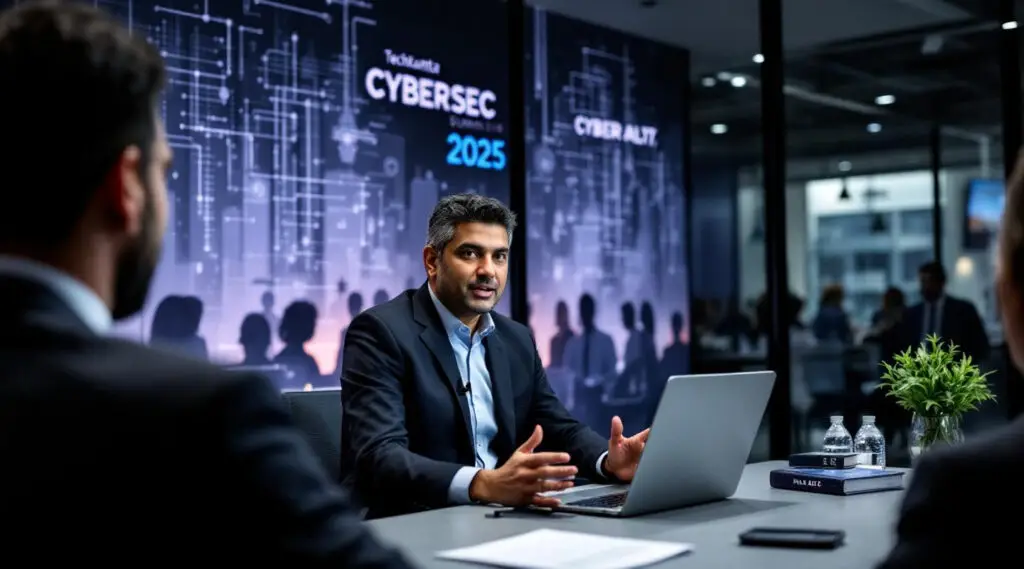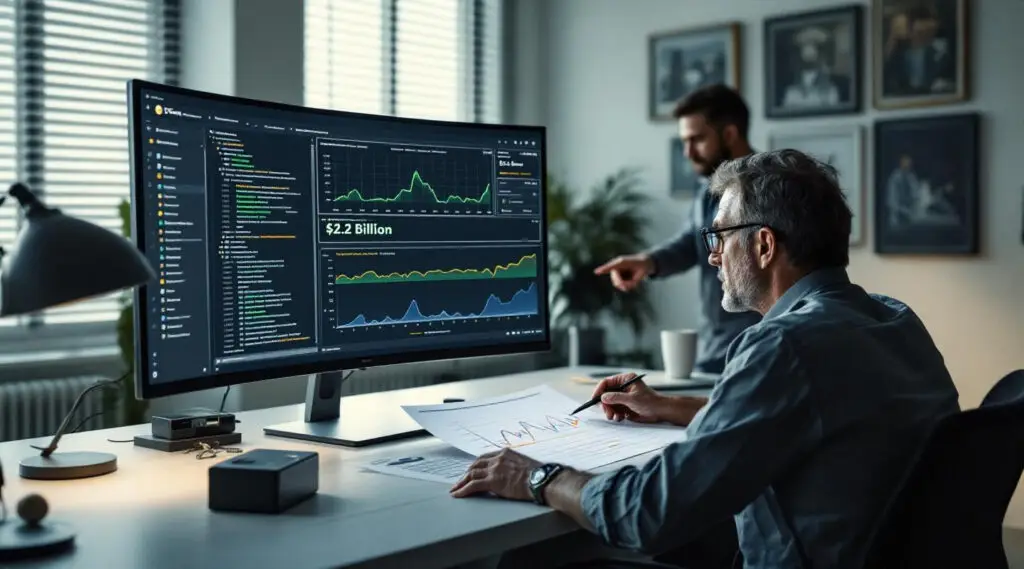Artificial intelligence stands as the most extensively discussed topic globally, yet its ultimate trajectory remains uncertain, even for world leaders who are still grasping its full potential. From sophisticated AI bots and agentic browsers to autonomous robots, a multitude of advancements are unfolding simultaneously. Despite being in its nascent stages, AI has already secured a significant share of the global market. In 2024, the global AI market size was valued at USD 233.46 billion, with projections indicating a substantial growth from USD 294.16 billion in 2025 to an impressive USD 1,771.62 billion by 2032, exhibiting a compound annual growth rate (CAGR) of 29.2 percent during this forecast period. Nikesh Arora, Chairman and CEO of Palo Alto Networks, believes this rapid expansion places us on the cusp of another major tectonic shift: the widespread democratization of intelligence.
Cybersecurity: A Foundational Opportunity
The cybersecurity industry is another sector experiencing rapid evolution. Valued at USD 172.24 billion in 2023, the global cybersecurity market is projected to grow from USD 193.73 billion in 2024 to USD 562.72 billion by 2032, demonstrating a robust CAGR of 14.3 percent over the forecast period. During The People Podcast, when asked by Nikhil Kamath about investment opportunities in cybersecurity, Arora advised against focusing on narrow trends. He emphasized that AI’s influence is far more foundational and pervasive, suggesting that while cybersecurity remains critical, especially as AI introduces new attack vectors and automates threats, the true opportunity lies in a fundamental reimagination of product development itself, rather than isolated security solutions.
The Power of Private Data in the AI Era
When questioned about capital becoming the defining competitive advantage in an AI-saturated world, Arora acknowledged that “the big get bigger, as long as they play their cards right.” However, he highlighted an even more powerful competitive moat: private data. While many current AI models are predominantly trained on publicly available information, Arora stressed that the true value resides in proprietary data, the kind meticulously guarded within pharmaceutical laboratories, semiconductor giants, and extensive enterprise systems. He asserted, “There’s 10 times more information in private domains,” suggesting that this exclusive data could provide select entities with an insurmountable advantage in developing highly specialized and effective AI models.
A Nuanced View on Admiration and Role Models
Arora shared a personal philosophy regarding admiration, advocating against the idea of adopting a singular role model. Instead, he emphasized the importance of admiring individuals for specific qualities or areas where they demonstrate exceptional skill, without blindly emulating every aspect of their persona. Using Elon Musk as an example, Arora noted that one can admire a person for their ingenuity and accomplishments while recognizing that not every facet of their life is necessarily worth replicating. This realization became particularly poignant for Arora when he turned 40, prompting a deliberate shift in how he evaluated others, moving from assessing them against his own definition of success to appreciating their unique achievements.
Lessons from Google: Product Obsession
Drawing from his extensive experience at Google, Arora recounted a pivotal interaction with co-founder Larry Page. After meeting Steve Jobs, Page shared Jobs’s advice to focus on doing one thing exceptionally well. However, Page disagreed, believing it was a “question of capacity” and that great people, if motivated, could build great things across multiple areas. Page’s unwavering product obsession was evident in his leadership; as CEO, he chose to have ten direct reports, seven of whom were product leaders. He bluntly told Arora, “I have to go build great products in the company. You keep doing what you’re doing,” illustrating his relentless focus on refining the company’s core offerings. This experience led Arora to an enduring truth: “Tech companies that lose sight of great products eventually fail.”
Cultural Values and Risk-Taking
Beyond the corporate boardroom, Arora also reflected on cultural values and their impact on risk-taking, particularly within the Indian context. He humorously observed how Indian parenting often revolves around de-risking children’s lives, quipping, “The best risk manager in the world is your mother.” From early childhood admonitions against putting objects in their mouths to later guidance towards safe career paths and stable marriages, the Indian upbringing is often designed to minimize uncertainty and foster stability. This cultural inclination towards risk aversion provides an interesting contrast to the entrepreneurial spirit often required in the tech world.
Masayoshi Son: The Risk-Taking Maverick
Arora also spoke about his close working relationship with Masayoshi Son (Masa), the visionary founder of SoftBank, describing him as a unique figure. Arora remarked that “Between the age of 50 and 60, he was sort of Benjamin Button,” implying that Son seemed to become more youthful and adventurous with age. He further noted that Son was “going, touching everything his mother said don’t touch, and being more and more risky.” This observation highlights Son’s unconventional approach to entrepreneurship, where, unlike most who take risks to eventually create stability, Son appeared to embrace increasing risk as he matured, continually pushing boundaries and challenging conventional wisdom in the pursuit of ambitious ventures.























